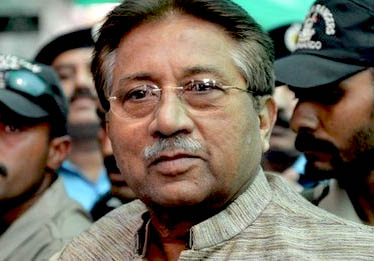 Islamabad, Apr 3: Former Pakistani dictator Pervez Musharraf, facing treason trial, had a narrow escape when a powerful bomb went off on a road near his farmhouse on the outskirts of the city shortly after his convoy had passed.
Islamabad, Apr 3: Former Pakistani dictator Pervez Musharraf, facing treason trial, had a narrow escape when a powerful bomb went off on a road near his farmhouse on the outskirts of the city shortly after his convoy had passed.
The explosion took place on VVIP Road between Faizabad and Rawal Dam Chowk one hour after 70-year-old Musharraf's convoy passed through the same route at about 3 am to shift him to his farmhouse from Armed Forces Institute of Cardiology (AFIC) in Rawalpindi.
The intensity of the blast caused about a foot deep hole in the ground at the site of the incident.
The police claimed that the attack was aimed to target the former president, media reports here said.
The police said the bomb disposal squad was called in at the blast site — three kilometers from Musharraf's sprawling Chak Shehzad farmhouse.
The bomb was reportedly planted in a drainage pipe adjacent to the footpath.
Since Musharraf is under threat from terror groups, heavy security has been given to him and all his routes are thoroughly checked before he gets out.
Reports said one person, who was in a car passing through the area, was injured in the blast.
The former military dictator was admitted to the AFIC on January 2 when he complained of heart problems on his way to a special court set up for his high treason trial for abrogating the constitution and detaining judges in 2007.
Musharraf was indicted on Monday by a special court hearing the high treason case against him.
The military has ruled Pakistan for about half of its 66-year history and no ruler or top military commander has ever faced criminal prosecution before Musharraf.
Since Musharraf returned to Pakistan from self-exile in March last year, he has faced prosecution in four major cases, including for his alleged involvement in the murder of former prime minister Benazir Bhutto in 2007 and the killing of Baloch nationalist leader Akbar Bugti in 2006.





Comments
Add new comment